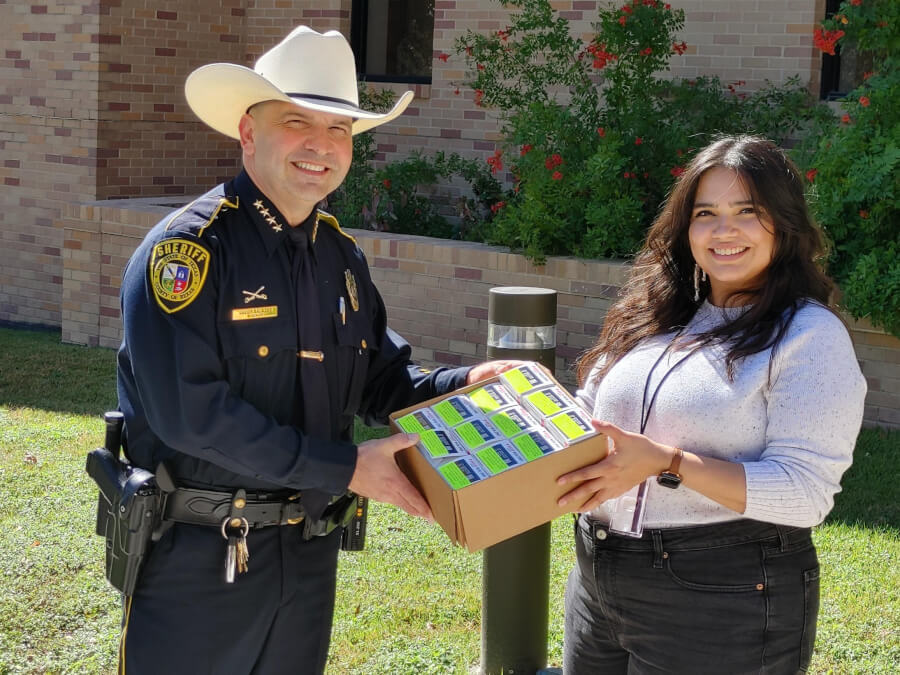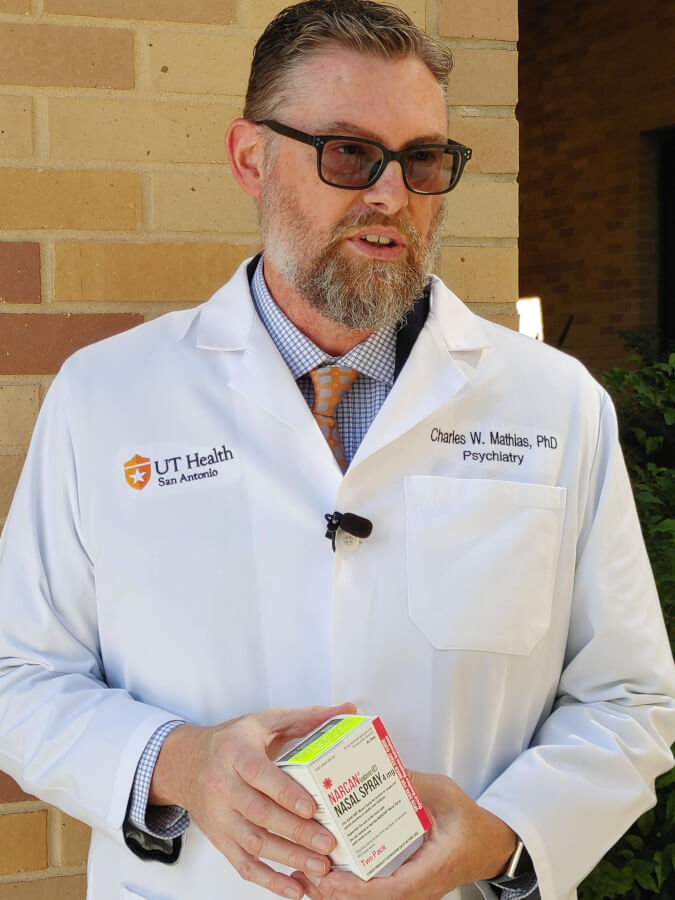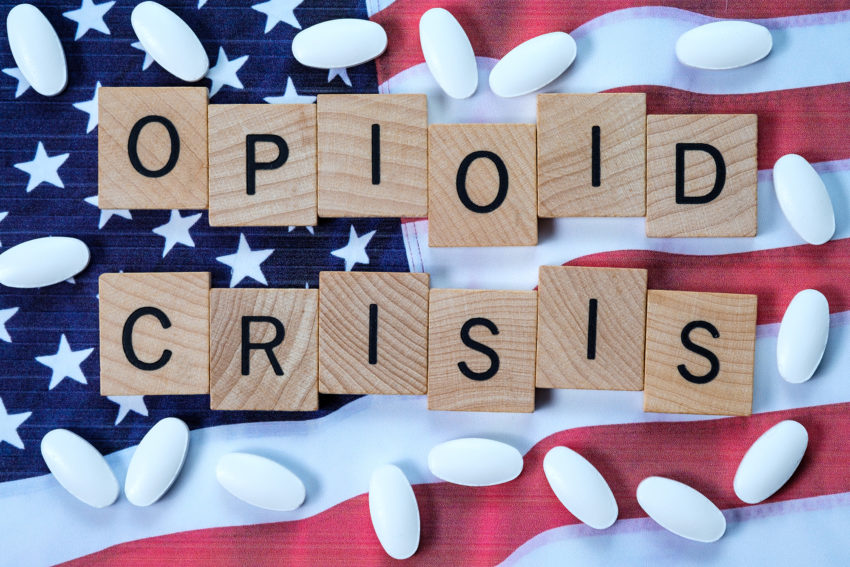Contact: Will Sansom, 210-567-2579, sansom@uthscsa.edu
SAN ANTONIO (Oct. 31, 2022) — Bexar County Sheriff Javier Salazar stopped by the UT Health San Antonio School of Nursing on Oct. 27 to receive 96 doses of Narcan®, a nasal spray that can rescue individuals who have experienced accidental opioid poisoning. The School of Nursing provides training to first responders on the use of Narcan and has distributed more than 600,000 doses throughout Texas since 2018. The program, directed by Lisa Cleveland, PhD, RN, professor in the School of Nursing, is made possible by grant funding from the Substance Abuse and Mental Health Services Administration.

Charles Mathias, PhD, associate professor of psychiatry and behavioral sciences, and Leticia Scott, project manager in the School of Nursing, represented the Cleveland team in greeting Salazar, Deputy Johnny Garcia and other members of the Bexar County Sheriff’s Office.
“Narcan is a drug that saves lives,” Salazar said. “Today we are unfortunately seeing an uptick in deaths and overdoses involving fentanyl and other opioids. From here, these doses of Narcan will immediately be distributed to our patrol deputies and will be on the street as soon as this evening.”
The Sheriff’s Office’s stores of Narcan were nearly depleted, so the office began making phone calls. “UT Health San Antonio’s School of Nursing came through in a big way for us,” Salazar said. “Dr. Cleveland and the team have been instrumental in helping us out with getting Narcan for our jail in the past. This time, they are coming to the aid of our patrol deputies, and we thank them for continuing to be good partners.”

Earlier in the day, he said, the Sheriff’s Office received word that a young man had been accidentally poisoned, and his mother, who had a small store of Narcan at home, administered several doses to save his life. Deputies were prepared to do the same, but that wasn’t necessary because of the mother’s actions and having Narcan available in that home.
“This is something that we continue to see,” Salazar said. “Incidents are skyrocketing. Our hope is that we don’t have to use these doses, but the reality is, our deputies will probably have to start using them almost immediately.”
“People can recover from opioid use disorder, but to recover they must be alive,” Mathias told KSAT 12 at the event. “Naloxone (Narcan) allows that to happen. We need to get more of this out into the community, especially as fentanyl has come in, and people who are not necessarily planning to ingest opioids are getting into accidental poisoning situations.”
The University of Texas Health Science Center at San Antonio (UT Health San Antonio) is a primary driver for San Antonio’s $42.4 billion health care and biosciences sector, the city’s largest economic generator. As the largest research university in South Texas, with an annual research portfolio of approximately $350 million, UT Health San Antonio drives substantial economic impact through its five professional schools, a diverse workforce of 7,200, an annual operating budget of more than $1 billion and a clinical practice that provides more than 2 million patient visits each year. Furthermore, UT Health San Antonio plans to add more than 1,500 higher-wage jobs over the next five years to serve San Antonio, Bexar County and South Texas. To learn about the many ways “We make lives better®,” visit www.uthscsa.edu.
Stay connected with The University of Texas Health Science Center at San Antonio on Facebook, Twitter, LinkedIn, Instagram and YouTube.


